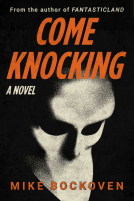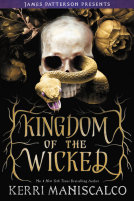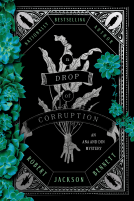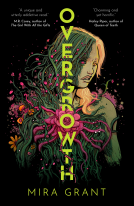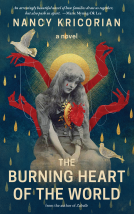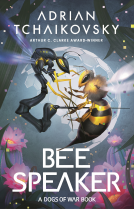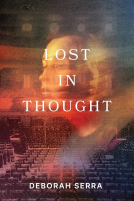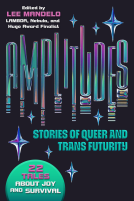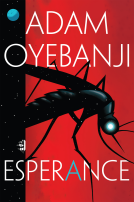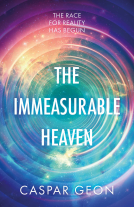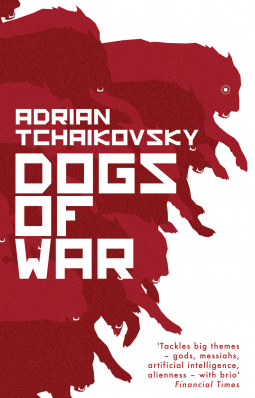
Dogs of War
by Adrian Tchaikovsky
This title was previously available on NetGalley and is now archived.
Send NetGalley books directly to your Kindle or Kindle app
1
To read on a Kindle or Kindle app, please add kindle@netgalley.com as an approved email address to receive files in your Amazon account. Click here for step-by-step instructions.
2
Also find your Kindle email address within your Amazon account, and enter it here.
Pub Date Nov 02 2017 | Archive Date Nov 07 2017
Description
A bio-engineered dog fights for its life and its right to life. From the Arthur C. Clark Award-winning author of CHILDREN OF TIME.
My name is Rex. I am a good dog.
Rex is also seven foot tall at the shoulder, bulletproof, bristling with heavy calibre weaponry and his voice resonates with subsonics especially designed to instil fear. With Dragon, Honey and Bees, he's part of a Multiform Assault Pack operating in the lawless anarchy of Campeche, Mexico. A genetically engineered Bioform, he's a deadly weapon in a dirty war. All he wants to be is a Good Dog. And to do that he must do exactly what Master says and Master says he's got to kill a lot of enemies.
But who, exactly, are the enemies? What happens when Master is tried as a war criminal? What rights does the Geneva Convention grant weapons? Do Rex and his fellow Bioforms even have a right to exist?
And what happens when Rex slips his leash?
'Detailed and clever worldbuilding... Tchaikovsky pulls off an impressive feat in making Rex's character evolution genuinely moving. Readers will be wowed' Publishers Weekly
A Note From the Publisher
APOLOGIES BUT THIS TITLE IS NOT AVAILABLE IN THE US AND CANADA SO REQUESTS FROM THOSE REGIONS CANNOT BE ACCEPTED
Available Editions
| EDITION | Other Format |
| ISBN | 9781786693884 |
| PRICE | $29.99 (USD) |
| PAGES | 400 |
Featured Reviews
 daniel p, Reviewer
daniel p, Reviewer
Thoroughly enjoyed this book, Tchaikovsky expertly gave voice to a number of different characters who were both complex and basic at the same time. Would recommend.
 Christopher M, Reviewer
Christopher M, Reviewer
Dogs of War is a standalone sci-fi novel from Adrian Tchaikovsky (whose science-fiction credentials include the superlative Children of Time, which we looked at very favourably last year).
It’s a book which explores a lot of interesting ideas, including the role of artificial intelligence in society, exactly what we define as humanity, the ethics of conflict resolution and the manufacturing of sentient biological life. But it does all of this through a variety of different perspectives, from civilian medical personnel to military bioforms, offering a personal view as an immediate and emotional underpinning to its exploration of these big ideas. It is one of the finest sci-fi novels I’ve read this year, and if you’re looking for a new book to read in the genre, it should probably be this one.
So, looking at it in detail, what’s it about? Well, the central character is Rex. Rex is a bioform, an artificially created life. We’re along for the ride in Rex’s head, and that head is one which marries sentience with different instincts to our own. Derived from canine stock, then bred for war and cybernetically integrated with weapon systems, Rex is extremely loyal to his Master, and extremely dangerous to those he’s told are the enemy. He works in a unit with other bioforms, each as weird, wonderful, and thoroughly deadly as the last. Perhaps the greatest triumph of the text is in giving the reader a great many non-human viewpoints to consider – from Rex’s canine loyalties and desire to help, to the combined consciousness of a cloud of weaponised bees, and the quietly murderous thoughts of a giant reptile. They’ve been given the ability to think, and to communicate with each other, within the bounds of their cybernetics, and each of them thinks differently, speaks differently, and reads differently on the page.
Unfortunately for Rex, his desire to do what his Master wants, indeed his almost inability to refuse, means that he may do some rather bad things. This throws up some exciting questions, first about the role that diminished actors could take in the commission of what might otherwise be war crimes, and about the responsibility and ethics that would come with the creation of new sentience. Actually, the lack of ethics is something more on the table here. At the same time, there’s an ongoing conversation about whether these bioforms, created in laboratories to fight others wars, are themselves actually people. That particular thread rumbles in the background of the narrative; as a reader, it’s possible to walk alongside Rex as he begins to feel, if not more human, perhaps more independent – and as we begin to see him as something other than a weapon, as he is portrayed that way, so too does the wider context round bioform rights open up.
There’s a fair bit of action here, laced bloodily throughout the text. It’s never glorified, and the consequences are shown, with a stark light that lets the reader form their own opions on the conflict. At the same time, the combat periods are kinetic, fast paced scenes with real impact – and the moments which explore what’s left behind are thoughtful and affecting without being mawkish. I have to admit, Rex’s unit working together is an awesome sight – and also one which is terrible. Kudos to the story for giving glimpses of both.
There’s other stuff in here too; the narrative is layered through with complex questions. If Rex and his bioform colleagues are alive, what does that say about artificial intelligences, also in their infancy in this near-future world? If bioforms are awarded personhood, how does society deal with people who are always heavily armed or actively designed to kill? Seeing that the conflicts Rex has, to be someone, to decide whether he actually wants to be anything other than a follower of his Master’s voice – well, they’re beautifully, honestly portrayed, and a very difficult read. At the same time, they ring true, evoking the US civil rights movement, or the institutional struggles of South Africa. This is a book which is trying to look at big issues in a future context, and also tell us something about humanity, and I think it succeeds.
Rex’s personal story – well, by the end of the book, listening to his voice, his thoughts, his feelings, and knowing has sacrifices, I’d been moved to tears several times. Though the story approaches and explores these grand ideas, and does so with complexity and nuance, it’s not afraid to give us stakes in the game. This isn’t a dry, academic exploration of social changes. It’s raw and bloody and personal – and fantastic.
Once again: this is one of the best science fiction books I’ve read this year, perfectly blending larger themes and big ideas together with a personal, emotional story; it’s a feast for the mind at the same time that it wrings out the heart, and I can’t recommend it enough – go buy it.
 Jack S, Reviewer
Jack S, Reviewer
Copy provided by Net Gallery.
So this was my second Tchaikovsky book I've ever read, and it's really quite different from Shadow's of the Apt. Other than having animal/humanoid type creatures. But I digress. I enjoyed this book quite a lot. The way Rex, the main character, was developed over the course of the novel - slowly becoming more eloquent and slowly gaining more perspective of his role in life was really quite well done I thought. The overall plot was fun, there's always that voice in the back of your head going "are they going to far? is this going to lead to some post apocalyptic nightmare?" But it's genuinely holds to some rather upbeat ideals. And regarding the deaths that happen during the story, I really did feel sad when they happened. Three in particular, so that was quite well done as well.
 Declan A, Reviewer
Declan A, Reviewer
I give it a 4.5 outta 5. Great story, great read! An action-packed novel about about animals (bioforms) engineered to enhance their natural abilities and turn them into weapons of destruction. Part of the charm of the story is that it is told through the perspective of the animals who constantly test the limits of their mental and physical prisons when they are sent to slaughter and be slaughtered, and how they must learn for themselves what is right and what is wrong.
The story can also be viewed as war story about a squad who are behind enemy lines without orders or without knowing how to return to base or what the enemy looks like, and how they must learn to survive in an unfamiliar world.
Overall there's not a lot, if anything, I can fault the book on, it is full of creativity and suspense and I would recommend it to anyone interested in sci-fi or war stories.
 Patrizia B, Reviewer
Patrizia B, Reviewer
I finished this late last night (has been a while since I stayed up so late to finish a book) but had to seriously ponder how to write this review.
Only recently I read Adrian Tchaikovsky's "Children of Time" and it is clear from these two books that the author has a wonderful sense of bringing the thoughts and feelings of animals (sorry, bioforms) to life. It is also clear that the author doesn't consider animals to be "just animals" but sees them on the same level as humans if not even one above. A notion with which I completely agree.
This book, then, is about Rex, a dog-like bioform engineered for war. He combines canine senses with sentience, human DNA and then also got cybernetically integrated weapons systems. He is the leader of one of the first few multi-form squads, meaning teams that consist of more than one kind of animal/bioform. It is also about what the engineers designed him to be and be capable of and what he actually is and is capable of. The same goes for the rest of his team.
The book uses multiple POVs from doctors to lawyers to all kinds of bioforms in order to explore topics such as the role of artificial intelligence in society (there is a history of robotics too), responsibility and guilt, what exactly we humans define as humanity, the ethics of conflict resolution and the manufacturing of sentient biological life. The different angles allow the author to give the reader many different perspectives with which to identify or not and allow for an objective as well as emotional exploration.
And he shows that there are never easy answers, easy solutions, and we often revert back to the old ways just because their familiarity offer comfort while new ways are often scary.
"making choices is the price of being free"
Nevertheless, at some point I was wondering where the author will take this because I had thought we had reached the end of the narrative. However, the author had a lot of threads that he weaved into a complex web of a lot of other important questions. Thanks to the fact that the entire book was interspersed with all kinds of wars and conflicts, it never got boring or too preachy / theoretical.
What I loved about this book was in what detail the author described each individual bioform and therefore gave them actual life and personality. We have the typical mammals but also marine bioforms, reptiles and even hive-minds (a very intriguing concept).
Rex has a lot of canine traits, while Dragon is a typical reptile, Bees' consciousness is literally buzzing all over the place, and the felines are ... well, cats (there was an enormously funny moment in the book when a character actually said
"Even chipped to the eyeballs you can't get cats to do what you want them to do."
and it definitely nails their best-known character trait).
However, this realistic portrayal of the bioforms' characters was also what was very difficult to read and especially after / because of their development I cried more than once.
Last but not least, I like how thorough the author is with his exploration of a topic. It would have been easy to end this book after the events in Campeche / Retorna but we went much further because the topic is and would be complex and winning one battle does in no way mean you'll win the war.
Moreover, as far as I can tell from conversations with veterans, he's really done a great job in realistically portraying what it means to be part of something bigger, wanting to protect and having a purpose - and being stripped of it later. He teaches the reader about integrity and sacrifice.
A true gem in this book was his criticism of current social and political problems in the world:
"Perhaps the idealism of the Anarchistas had decayed into the sort of backbiting rabies that such popular movements so often devolved into, not fighting for, just fighting against."
"flavour-of-the-month outrage"
"Technology is not Good Tech or Bad Tech. It is the Master who is guilty for what it does."
Sounds like comments to very current topics to me.
To me, this is one of the most important books when it comes to considering the future of bio-tech, human engineering and the ethics that should not be forgotten but go with the territory and the author has quickly become one of my favourites simply for having a fantastic way of making the reader THINK.
Readers who liked this book also liked:
Silvia Moreno-Garcia
Historical Fiction, Literary Fiction, Sci Fi & Fantasy


